Research from Deloitte shows that marketing costs eat up over 10% of a company’s total budget. While a necessary investment, SEO for insurance agencies provides a way to cut these costs with sustainable and predictable acquisition.
Table of Contents
Our previous post on SEO for insurance agencies shared 10 great tips to help you rank. This article will delve a little deeper and explore more advanced tips for insurance companies that want to dominate search engine rankings.
Create High-Quality Content
According to a report from online search engine publication Search Engine Watch, 7 out of 10 customers research online before they contact an insurance company.
SEO is an essential channel for generating qualified leads you can convert into loyal customers. Creating high-quality content that satisfies user intent is necessary if you want to take advantage of this potential traffic.
Let’s explore the four cornerstones of this approach.
1. Great Content and Thorough Keyword Research
Understanding your audience and their pain points is a great starting point for keyword research. With the right keyword research, you can decipher your target audience’s intent and tailor your content to capture their interest.
Once you know how your audience thinks and talks about insurance, you need to ensure your content is top quality. In other words, it must be highly readable, packed with valuable insights, and relevant to the search terms you target. Without this quality, your search engine rankings will suffer.
2. Search Volume and Keyword Difficulty
Proper SEO for insurance agencies involves thinking about search volume and keyword difficulty. To rank quickly, you must find keywords with good search volume but not too much competition.
You should also target long-tail keywords. While they have less volume, their conversion rates are typically higher.
3. Additional content
There are other ways to enhance SEO on your site besides compelling landing pages and content marketing. You can also explore other on-page elements like:
- Incorporating structural elements like a table of contents
- Adding frequently asked questions (FAQ) to pack a page with useful information that answers your target audience’s queries
- Referring to “People also ask” questions, a search engine results page (SERP) feature, to understand what information your potential customers are hunting for and how they are phrasing these queries
4. Quality Over Quantity
Google’s recent March update has penalized sites with low-quality content. While SEO experts are still adjusting to these changes, it’s clear that the days of thin, mass-produced content gaming SERPs are truly over.
Instead, focus on making each piece of content on your page as good as possible and ensuring it aligns with your overall SEO strategy. Niches like insurance thrive on accurate information. Ensure your content is trustworthy, bulletproof, and provides clear value to your audience.
Use AI/Automation and Optimize for Voice Search
SEO for insurance agencies involves a lot of moving parts. However, you can cut down the workload if you embrace artificial intelligence (AI) and automation tools and optimize for the different ways consumers search for insurance products.
Let’s explore some use cases.
AI Tools for SEO
Artificial intelligence tools can help you on your SEO journey in several ways. Here are a few exciting ways to use this technology to boost your ranking.
- AI-powered SEO tools can complete keyword research, analyze your target audience’s search terms, and help you perform competitor analysis.
- Generative AI can help you outline content, suggest topics, and even write rough drafts. However, at minimum, you’ll need humans for sense checks and polish.
- AI tools can also help you perform sophisticated SEO site audits. Again, the human touch gives you the deepest insights into site performance.
Target Voice Search
Two in three Americans use voice search. If you want to capture that traffic, you need to write a specific type of content.
Here are some tips to help satisfy voice searches.
- The way people search for keywords and the way they talk are different. So, read naturally to meet voice search. For example, “car insurance cost” vs. “How much does car insurance cost?”
- Voice search is conversational. Use long-tail keywords with natural phrasing and work them into your content and meta tags.
- FAQ lists are a great way to target voice search. Phrase the questions in natural and conversational tones to match user input, target search engine snippets, and produce more relatable content.
- Schema markup is essential. Use this approach to tell search engines what your content is about so they can index it easily.
Prioritize User Experience
Google uses many different factors to rank pages. One of the most important is user experience. In short, Google wants users to continue using its search engine so it can sell advertisements. The best way to keep users coming back is to provide them with helpful content and a great user experience.
But how can you provide a great user experience (UX) on your insurance website? Follow these steps.
1. Mobile Optimization
Optimizing your site for mobile devices makes sense. After all, it’s where most searchers for insurance start. Here are some tips that you can use:
- Ensure your website is responsive and displays well on desktops, tablets, and smartphones.
- Good mobile UX uses large buttons that are easy to tap on small devices.
- Keep your website forms short and sweet so they are easy for smartphone users to navigate.
2. Easily Navigable and Intuitive Website Structure
You can achieve great website UX with the following tips.
- Don’t overload your users. Make sure everything is easy for new users to find on your website.
- Use clear headers, and consider adding a navigation bar for important sections.
- Add a prominent search bar so users can get straight to the content they need.
3. Page Speed Optimization
Page speed is a big ranking factor. These tips will ensure your website loads within industry benchmarks.
- Each extra second it takes your page to load will cause users to bounce.
- Audit your site with Google’s PageSpeed Insights to quickly identify issues.
- Compress images and videos to reduce page load speed.
Monitor, Analyze, and Adapt
You’re never really done with SEO. Sure, you can get it up to a good point, but as your competitors and users evolve, you must, too. Good SEO monitoring tools help ensure your insurance website continues to deliver traffic and leads over the long term.
Regular tracking of your SEO metrics is essential. It allows you to get under the hood and really understand the factors that drive web traffic. What’s more, it enables you to experiment and correct any problems.
Here are the key metrics you need to track.
Key SEO Metrics to Track
- Organic search traffic: This metric helps you track the number of visitors coming to your website via SERPs. If it goes up or down, it’s almost certainly attributable to your SEO efforts.
- Keyword ranking: This metric shows you where you rank for particular keywords.
- Backlink profile: This metric helps you track how many websites are linking to your website. Quantity is good, but quality is much more important.
Best Tools for SEO Analysis
If you want to track your SEO efforts, you need reliable tools. Here are some of the best applications for SEO.
- Google Analytics 4 (GA4)
- Google Search Console
- Specialist SEO tools like Ahrefs, SEMrush, and Moz
Data-Driven SEO Decisions
Reliable SEO data provides you with the objective information you need to make decisions. Here are some areas to consider.
- GA4 offers data on user behavior, traffic sources, and conversions that help you understand the impact of your content.
- Google Search Console gives insights into how Google indexes your site. Use this data to fix crawl issues, optimize keywords, and boost your click-through rates.
- Monitor traffic and keywords, and attribute spikes to new content, competitors’ strategies, or algorithm updates.
- Focus on metrics like dwell time and bounce rate to understand the effectiveness of your content.
Play the Long Game With SEO for Insurance Agencies
SEO for insurance agencies is a long-term game. While it might take some time to get results, once you start generating organic traffic, your customer acquisition costs (CACs) will drop.
The precise nature of search engine algorithms is largely unknown. However, what we do know is that Google prioritizes user experience and high-quality content. Focus on writing helpful content, target voice search, and use AI and automation technologies for support and analysis, and you’ll make the progress you need.
Successful SEO in crowded spaces like the insurance sector won’t happen overnight. If running your business means you already have enough on your plate, reach out to Neilson Marketing for a chat. We can lighten your load by guiding your strategy and helping you drive traffic and leads to transform your business.
FAQ
Q: Are backlinks important for insurance SEO?
A: Yes. Backlinks signal to search engines that your content is valuable.
Q: Can social media help my insurance agency’s search engine ranking?
A: While social media is not a direct ranking factor, it can help boost trust and visibility and drive organic traffic to your website.
Q: Should I focus on SEO or paid ads?
A: SEO and paid ads are different strategies with their own advantages and disadvantages. Paid ads are a good idea when you need some “quick wins” for your insurance agency. However, they require a decent budget to get results. SEO, on the other hand, drives “free” organic traffic. In many cases, a great blog post can bring people to your site for years.
Q: How long does it take to see results from SEO?
A: It depends on various factors, like your website and industry competitiveness. You should expect at least a few months to make any ranking inroads. And the longer you stick with it, the greater your potential results, so don’t make the mistake of quitting too soon.
